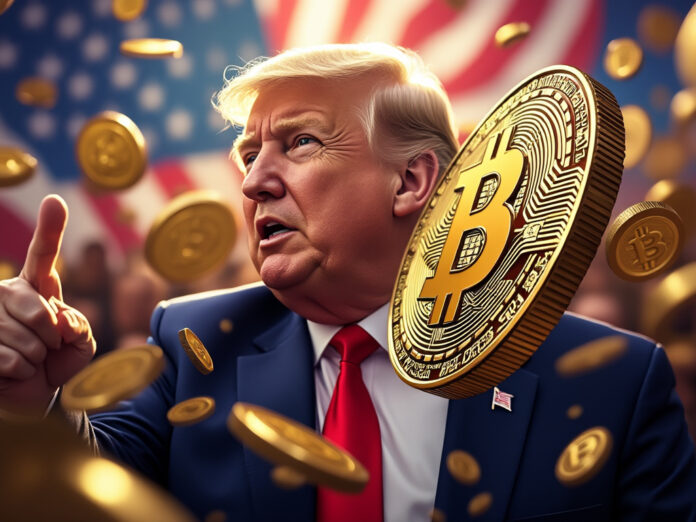In a remarkable turn of events for the cryptocurrency market, Bitcoin has soared past the $83,000 mark, hitting a record high of $83,460.
This surge, representing a 9% increase, reflects growing investor optimism tied to the political landscape, particularly with the anticipated return of Donald Trump to the White House.
The world’s largest cryptocurrency has more than doubled its value since this time last year when it hovered around $37,000.
This meteoric rise comes on the back of what analysts are dubbing the “Trump trade,” a phenomenon that has spurred not just Bitcoin but also other asset classes as financial markets respond to Trump’s victory in the recent presidential election.
With the prospect of a high-spending U.S. government now on the horizon, investors are adjusting their strategies, expecting that increased fiscal stimulus could limit the Federal Reserve’s ability to cut interest rates aggressively.
This sentiment has translated into a strengthened dollar, which rose 0.6% against a basket of currencies on Monday. The euro traded at its lowest point since May, dropping 0.7% to $1.0641, while the British pound fell by 0.46% to $1.2862.
Wall Street has also reacted positively, with stocks reaching new highs, and European shares gaining momentum as investors anticipate a bullish market environment.
The excitement surrounding Trump’s policies, especially his potential approach to cryptocurrencies, has invigorated trading floors around the world.
Historically, Trump has expressed skepticism towards Bitcoin, calling it a “scam against the dollar.” However, his rhetoric shifted during the recent presidential campaign, where he actively sought the support of the crypto community and participated in industry events.
This pivot has led to heightened expectations regarding regulatory changes that could simplify the investment process in cryptocurrencies for retail investors, even though Trump has not officially outlined any specific policies related to digital currencies.



















